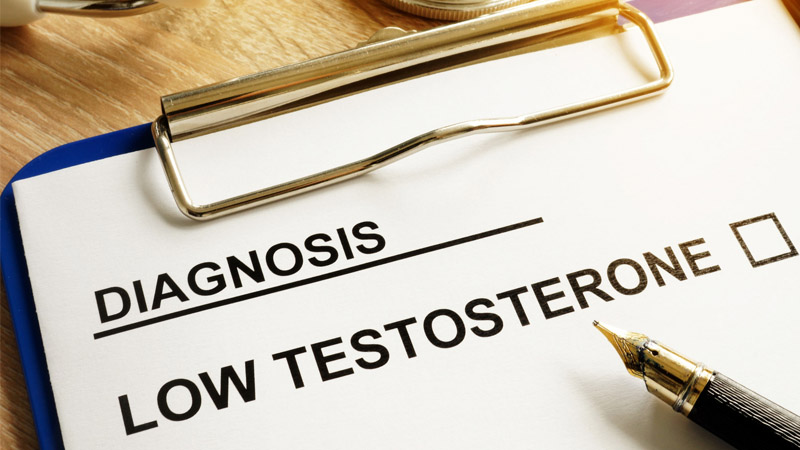Testosterone Supplements And What You Should Know About ‘Low T’

Declining testosterone levels is a fact of life for many men. For some it is age related and for others there is likely a specific cause according to endocrinologist Dr. Matthew Corcoran of Shore Physicians Group. Low testosterone refers to a decrease in the amount of testosterone being produced in the testicles as a result of disorders involving the testes or pituitary or hypothalamus in the brain. Dr. Corcoran added that some chronic medical conditions with a higher risk of low testosterone include Type 2 diabetes, chronic obstructive pulmonary disease (COPD), renal failure, and osteoporosis. The aging process and obesity are also associated with a lowering of the testosterone level.
Symptoms of Low T
Some common symptoms and complaints of men who experience low testosterone include decreased energy, diminished libido and depressed mood. Long-standing low testosterone may result in a decrease of muscle mass. When the low testosterone is caused by a testicular disorder, men may present with infertility and/or swelling of the breast tissue (gynecomastia).
“Our job is to determine if they have a low testosterone level and then figure out why,” said Dr. Corcoran. Evaluation of the testosterone level in the fasting state in the early morning is the best test to evaluate according to the endocrinologist. “We take a history and exam-hear them out, listen to what they are saying. The next step is to do early morning fasting testosterone levels. We rely on 2 to 3 levels to confirm.” From there, they can move forward to determine the course of treatment.
Chronic Management
There are many testosterone preparations for use, including gels, patches and intramuscular injections with the goal of delivering a steady dose of testosterone. Often the reason for the low testosterone level is a chronic medical condition, such as Klinefelter’s syndrome, the use of chemotherapy, or a pituitary disorder and it will require the patient to manage their lower testosterone levels long term. Low testosterone is often a chronic condition that will not resolve itself, therefore requiring ongoing therapy.
Dr. Corcoran did say that patients with obesity may have a low testosterone level directly related to being overweight, and that it may not necessitate testosterone replacement. In this case, lifestyle modification and weight loss may correct the lab abnormality. As for claims that certain foods will boost metabolism and improve testosterone levels, Dr. Corcoran stated that in this case watching total caloric intake and weight loss is the better option to improved health and testosterone levels.
Testicular disorders associated with low testosterone and infertility-related low testosterone may be treated by other hormonal therapies geared toward addressing the fertility side of things. This may be managed in reproductive endocrinology offices as well, according to Dr Corcoran. He also explained that taking supplemental testosterone will increase the testosterone level but at the same time may be counterproductive to fertility as it may decrease sperm count. For this and many other reasons, testosterone should not be prescribed to men without a documented low testosterone level.
Low Testosterone Supplements
There is no shortage of supplements that can be purchased over the counter such as Nugenix or ExtendEz that claim to increase testosterone, stamina, muscle mass and sex drive. Dr. Corcoran does not recommend any of the supplemental products, saying, “In the endocrine world we do not have any good, long-term data on improving testosterone levels with over-the-counter products. The real struggle with supplements is that they are not well studied nor are they well regulated. Our job is to determine if the patient has low testosterone and then understand why they have it and then walk them through the treatment,” said Dr. Corcoran.
He did voice concern on the improper use of medications designed to combat low testosterone. Dr. Corcoran added that It can be risky and in younger me it will suppress sperm production. Some users will try to use the testosterone to build muscle mass or as a performance enhancer, but there are risks and it could be dangerous if the person taking the testosterone has an underlying prostate cancer, breast cancer, elevated blood count and/or significant obstructive sleep apnea.
If you think you might be experiencing low testosterone, consider scheduling an appointment with Dr. Matthew Corcoran.